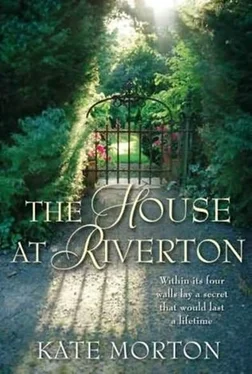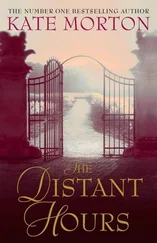Rule number three: only three may play. No more, no less. Three. A number favoured as much by art as by science: primary colours, points required to locate an object in space, notes to form a musical chord. Three points of a triangle, the first geometrical figure. Incontrovertible fact: two straight lines cannot enclose a space. The points of a triangle may move, shift allegiance, the distance between two disappear as they draw away from the third, but together they always define a triangle. Self-contained, real, complete.
The Game’s rules I learned because I read them. Written in neat but childish handwriting on yellowing paper, stuck beneath the lid of the box. I will remember them forever. To these rules, each had put their name. By general agreement, this third day of April, 1908. David Hartford, Hannah Hartford , and finally, in larger, more abstract print, the initials EH . Rules are a serious business for children, and The Game required a sense of duty adults wouldn’t understand. Unless of course they were servants, in which case duty was something they knew a lot about.
So there it is. It was just a children’s game. And not the only one they played. Eventually they outgrew it, forgot it, left it behind. Or thought they did. By the time I met them, it was already on its last legs. History was about to intervene: real adventure, real escape, adulthood, was lurking, laughing, round the corner.
Just a children’s game and yet… What happened in the end would surely not have come about without it?
The day of the guests’ arrival dawned and I was given special permission, on condition my duties were complete, to watch from the first-floor balcony. As outside evening fell, I huddled by the banister, face pressed between two rails, eagerly awaiting the crunch of motor-car tyres on the gravel out front.
First to arrive was Lady Clementine de Welton, a family friend with the grandeur and gloom of the late Queen, and her charge Miss Frances Dawkins (universally known as Fanny): a skinny, garrulous girl, whose parents had gone down with the Titanic and who, at seventeen, was rumoured to be in energetic pursuit of a husband. According to Myra, it was Lady Violet’s dearest wish that Fanny should make a match with the widowed Mr Frederick, though the latter remained entirely unconvinced.
Mr Hamilton led them to the drawing room where Lord and Lady Ashbury were waiting, and announced their arrival with a flourish. I watched from behind as they disappeared into the room-Lady Clementine first, Fanny close behind-and was put in mind of Mr Hamilton’s salver of cocktail glasses on which the brandy balloons and champagne flutes jostled for space.
Mr Hamilton returned to the entrance hall and was straightening his cuffs-a gesture that was habit with him-when the Major and his wife arrived. She was a small, plump, brown-haired woman whose face, though kindly, bore the cruel etchings of grief. It is hindsight, of course, that makes me describe her thus, though even at the time I supposed her the victim of some misfortune. Myra may not have been prepared to divulge the mystery of the Major’s children, but my young imagination, fed as it was on Gothic novels, was a fertile place. Besides, the nuances of attraction between a man and a woman were foreign to me then and I reasoned only tragedy could account for such a tall, handsome man as the Major being married to so plain a woman. She must once have been lovely, I supposed, until some fiendish hardship befell them and seized from her whatever youth or beauty she had once possessed.
The Major, even sterner than his portrait allowed, asked customarily after Mr Hamilton’s health, cast a proprietorial glance over the entrance hall, and led Jemima to the drawing room. As they disappeared behind the door I saw that his hand rested tenderly at the base of her spine, a gesture that somehow belied his severe physical bearing, and which I have never quite forgotten.
My legs had grown stiff from crouching when finally Mr Frederick’s motor car crunched along the gravel of the driveway. Mr Hamilton glanced reprovingly at the hall clock then pulled open the front door.
Mr Frederick was shorter than I expected, certainly not so tall as his brother, and I could make out no more of his features than the rim of a pair of glasses. For even when his hat was taken he did not raise his head. Merely ran his hand tentatively over the top to smooth his fair hair.
Only when Mr Hamilton opened the drawing-room door and announced his arrival did Mr Frederick’s attention flicker from his purpose. His gaze skittered about the room, taking in the marble, the portraits, the home of his youth, before alighting finally on my balcony. And in the brief moment before he was swallowed by the noisy room, his face paled as if he’d seen a ghost.
The week passed quickly. With so many extra people in the house I was kept busy making up rooms, carrying tea trays, laying out luncheons. This pleased me well as I was not shy of hard work-Mother had made sure of that. Besides, I longed for the weekend to arrive and with it the bank holiday play recital. For while the rest of the staff was focused on the midsummer dinner, all I could think of was the recital. I had barely seen the children since the adults arrived. The fog blew away as suddenly as it came, leaving in its place warm, clear skies, too beautiful to waste indoors. Each day, as I rounded the corridor toward the nursery, I held my breath hopefully, but the fine weather was to hold and they were not to use the room again that year. They took their noise and their mischief and their Game outside.
And with them went the room’s enchantment. Stillness became emptiness and the small flame of pleasure I had nurtured was extinguished. I hurried my duties now, straightened the bookshelves without so much as a glance at their contents, no longer caught the horse’s eye; thought only of what they might be doing. And when I was finished, I didn’t linger, but moved on swiftly to complete my duties. Occasionally, when I was clearing the breakfast tray from a second-floor guestroom or disposing of the night-waters, a squeal of distant laughter would draw my eyes to the window and I would see them, far off in the distance, heading toward the lake, disappearing down the driveway, duelling with long straight sticks.
Downstairs, Mr Hamilton had stirred the servants into a frenzy of activity. It was the test of a good staff, he said, not to mention the proof of a butler’s mettle, to serve a household of guests. No request was to prove too much. We were to work as a finely oiled locomotion, rising to meet each challenge, exceeding the Master’s every expectation. It was to be a week of small triumphs, culminating in the midsummer dinner.
Mr Hamilton’s fervour was infectious; even Myra suffered an elevation of spirits and called a truce of sorts, offering, grudgingly, that I might help her clean the drawing room. It wasn’t ordinarily my place, she reminded me, to be cleaning the main rooms, but with the Master’s family visiting I was to be allowed the privilege-under strict observation-to practise these advanced duties. So it was I added this dubious opportunity to my already inflated duty load and accompanied Myra daily to the drawing room where the adults sipped tea and discussed things that interested me little: weekend country parties, European politics, and some unfortunate Austrian fellow who’d been shot in a faraway place.
The day of the recital (Sunday 2 August 1914-I remember the date, though not for the recital as much as what came after) coincided with my afternoon off and my first visit to Mother since I’d started at Riverton. When I’d finished my morning duties, I exchanged my uniform for regular clothes, strangely stiff and unfamiliar on my body. I brushed my hair out-pale and kinky where it had been wrapped in its plait-then set about rebraiding, coiling a bun at the nape of my neck. Did I look any different, I wondered? Would Mother think so? It had only been five weeks and yet I felt inexplicably changed.
Читать дальше












